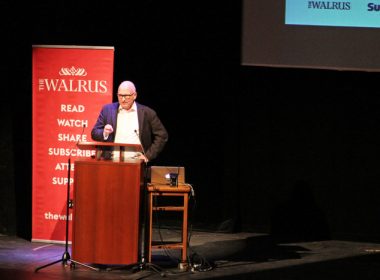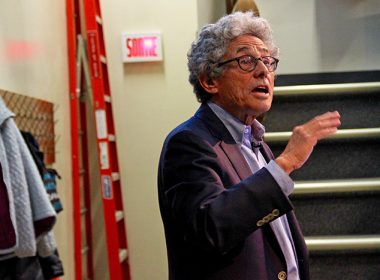When former McGill Martlet Volleyball player Charlotte Clarke went up for a hit during a match, she wasn’t too worried about how she was going to land. But when she came down on one leg, her teammates heard a crack. “It was excruciating,” Clarke, U3 Arts, said. “The pain [made[Read More…]
Science & Technology
The latest in science and technology.
McGill researcher finds lying becomes more complex with age
Department of Educational and Counselling Psychology Professor Dr. Victoria Talwar remembers that when she was a child, her mother mistakenly replaced salt with sugar in a blueberry pie. Her friend, who had stayed for dinner, was the first to eat the pie. She ate the entire slice, bite by bite,[Read More…]
2016 Lorne Trottier Symposium on Science and the Media discusses the challenge of pseudoscience in reporting
Today it might be bacon, but tomorrow it could be avocados; the public has a macabre obsession with searching for things that may kill us. In the Age of Anxiety, it’s easy to get lost in all the opinions thrown around as fact in the media. The Lorne Trottier Symposium[Read More…]
Reaching the limits of the human lifespan
The longest any human being has ever lived was 122 years. Jeanne Calment of France, who rode a bicycle until age 100, passed away in 1997. Since then, no one has been recorded to live past 120 years. A paper published in the Oct. 2016 issue of Nature claims to have[Read More…]
Tiny materials, big changes: McGill announces new minor program in nanotechnology
McGill’s Faculty of Engineering launched a new minor program this year that explores into the world of nanotechnology. It’s a relatively young field that focuses on nanomaterials—materials that have one dimension measuring 100 nanometres or less. Nanomaterials are so tiny they often can’t even be seen under a microscope—in fact,[Read More…]
The Walrus Talks Energy: Perspectives on Canada and global climate change
As one of the top five oil and natural gas producing countries, Canada shapes the global conversation on the future of energy and the related issue of global climate change. At The Walrus Talks Energy, eight presenters from a variety of professions discussed Canada’s perspective in the global energy economy.[Read More…]
Combatting dystopian visions of the future with Seeds of Good Anthropocene project
The Earth has reached a new epoch, one in which the climate is largely impacted by human activities. The anthropocene, as scientists call this period, is often viewed as hopeless, a geological age which will bring environmental destruction; or, in an even more dystopian view, an era that will lead[Read More…]
Using chaos to examine the neurophysiology of aesthetics: Defining human appreciation for art and music
“What do we think is beautiful? How do our brains interpret what we perceive?” Physiology Professor Dr. Leon Glass asked the audience. His presentation, as part of the Cutting Edge Lectures in Science hosted by the Redpath Museum, discussed how chaos and fractals can be used to define human appreciation[Read More…]
The disappearance of truth from American politics
American politicians are rarely known for their honesty, and their performances in presidential debates tend to be no exception. From Gerald Ford’s claim in 1976 that “there is no Soviet domination of Eastern Europe” to Mitt Romney’s assertion in 2012 that the Obama administration took 14 days before acknowledging the[Read More…]
Economics of the anthropocene: Paradigm shift needed for sustainable future
On behalf of the Post-Graduate Students’ Society (PGSS) and Economics for the Anthropocene (E4A), Stewart Wallis, the former executive director of the New Economics Foundation (NEF), discussed the need for a transition from an anthropocentric economic system to a biocentric one. The Oct. 4 presentation, titled Economics without Growth, opened[Read More…]















